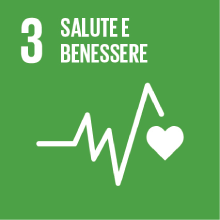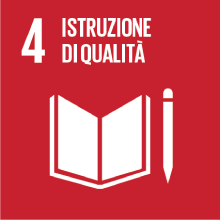GLOBAL HISTORY
- Anno accademico
- 2025/2026 Programmi anni precedenti
- Titolo corso in inglese
- GLOBAL HISTORY
- Codice insegnamento
- LM6320 (AF:561857 AR:323331)
- Lingua di insegnamento
- Inglese
- Modalità
- Blended (in presenza e online)
- Crediti formativi universitari
- 6
- Livello laurea
- Laurea magistrale (DM270)
- Settore scientifico disciplinare
- M-STO/02
- Periodo
- II Semestre
- Anno corso
- 1
- Sede
- VENEZIA
Inquadramento dell'insegnamento nel percorso del corso di studio
Objectives:
-Provide students with a clear theoretical and empirical framework to understand the concept of Global and Globalization according to an historical perspective
-Analyze themes of Global History in a multidisciplinary perspective able to encompass political, economic and cultural factors
-Analyze how the methodology of Global History could give new outlooks also on national histories, starting from the case of Italy
-Analyze the key-themes of Globalization (the intertwinement between economic, political and cultural networks) and their historical development during the Early Modern Age
The above-mentioned four specific objectives aim to give students the instruments necessary to develop a critical and personal view of the topics discussed and to develop an independent and multidisciplinary methodology for the analysis of historical phenomena to better understand the present
Risultati di apprendimento attesi
- Understand the general framework of Global History and Globalization
- Understand the global approach to history
- Understand the multidisciplinary character of Global History through the thematic cases presented
- Understand the processes of Globalization during the Early Modern Age
2. Ability of applying knowledge and understanding
- Understand the general framework of Global History and Globalization> Ability of discussing subjects related to the field (Global History) in a specialized language and according to an historical methodology and to explain them to classmates
- Understand the global approach to history > Ability of comprehending the methodology of Global History and to confront it with other instrument of analysis they already master from previous studies (e.g. European history, Atlantic history, History of International Relations)
- Understand the multidisciplinary character of Global History through the thematic cases presented> Ability of applying the historical methodology through the cases analyzed also to other fields of study (e.g. final dissertation)
- Understand the processes of Globalization during the Early Modern Age > Ability of analyzing events and phenomena in an historical dimension
3. Judgement abilities
- Ability of connecting the facts and data learnt during lessons
- Ability of organizing the course materials (lessons and readings) in a coherent interpretation
- Ability of interpreting and commenting the weekly reading materials
4. Communicative abilities
- Ability of presenting the issues related to the field of study using specialized language
- Ability of presenting the knowledge acquired from lessons and readings in a coherent discourse
- Ability to gather data and to create learning supports (e.g. hand-out, ppt presentation) in order to present one own’s results during lessons and seminars
5. Learning abilities
- Ability of taking notes during lessons
- Ability of critically reading the assigned bibliography
- Ability of connected the knowledge acquired to nowadays issues
Prerequisiti
Students who realize they do not possess the requested basic knowledge can follow the class, but are kindly invited to catch up with the basics before taking the exam. They might refer to:
-Introduzione alla storia moderna, a cura di Marco Bellabarba, Vincenzo Lavenia, Bologna, Il Mulino, 2018
-The Oxford handbook of early modern european history, 1350-1750, edited by Hamish Scott, Oxford, Oxford University Press, 2015
-The Oxford handbook of the Atlantic world : c.1450-c.1850 / edited by Nicholas Canny and Philip Morgan, Oxford, Oxford University Press, 2011
Students must fulfill the minimum credit requirements (ECTS) for the admission to the MA in Comparative International Relations. Therefore, they must possess at least 6 ECTS from the Political-logical-social and historical Field.
Contenuti
-global history as an analytical methodology
-population as one of the main variables of globalization
-patterns of demographic history in early modern history
-crises and catastrophes in demographic history
-the turning point of the age of revolutions (mid-18th century - mid-19th century)
-epidemics and public health
-demographic growth and environmental impacts
-economic, social and political debates on population
-population politics
Testi di riferimento
1. their class notes
2. the slides and the materials available on Moodle
Suggested readings:
T.B.D.
Modalità di verifica dell'apprendimento
Exam: oral.
Number of questions and structure:
-if a student completes the activities and presents in class, they will receive a score between 0 and 3 and such score will be added, in case, to the grade achieved in the oral exam; the exam will consist of two questions, the first on their paper and the second on an issue explored during the course.
-if a student doesn't present in class, the exam will consist of three questions.
Detailed description of the expected learning results.
Presentation: expected learning results 2.Ability of applying knowledge and understanding, 3.Judgement abilities and 4. Communicative abilities.
Final oral exam. The exam aims to assess the critical understanding of the contents discussed during the course and the individual reflection on the assigned materials. It will therefore consist of two/three questions. The approximate duration is 15-20 minutes: expected learning results 1.Knowledge and understanding, 3.Judgement abilities, 4. Communicative abilities, and 5.Learning abilities.
Regarding the grading, the exam will be marked on a scale ranging from 0 to 30. The minimum passing grade is 18. Honors ("lode") will be granted only for exceptional capacity of judgment and excellent knowledge of the topics under evaluation
Modalità di esame
Graduazione dei voti
Metodi didattici
Seminars
Case study analysis
Ppt presentations
Digital Humanities
Altre informazioni
Students with disabilities can contact the Disability and Accessibility Office (disabilita@unive.it) to take advantage of the services available (e.g. alternative examination methods, readers, etc.).
Students interested in carrying out a master's degree thesis in Global History can contact the professor, after passing the exam, for the appropriate vademecum (by writing directly to giulia.delogu@unive.it) or they can meet to the professor in her office hours. A preliminary vademecum is available at the Notices section of the professor's webpage.
Obiettivi Agenda 2030 per lo sviluppo sostenibile
Questo insegnamento tratta argomenti connessi alla macroarea "Capitale umano, salute, educazione" e concorre alla realizzazione dei relativi obiettivi ONU dell'Agenda 2030 per lo Sviluppo Sostenibile


